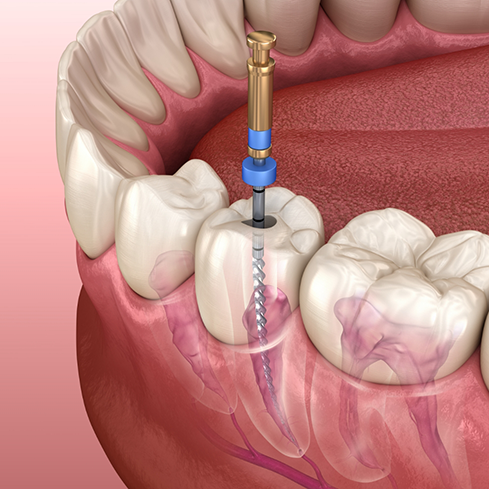Root Canal Treatment Port Chester
Addressing the Root of Your Tooth Pain

Despite the way that root canals are portrayed in movies and television, believe it or not, they’re arguably one of the best ways of treating a tooth that’s suffered intense damage or decay and is causing severe pain. Better yet, it allows a patient to keep their natural tooth, which is always a preferred outcome! To learn more about how root canal treatment can save your hurting smile and keep your tooth right where it needs to be, don’t hesitate to contact our Port Chester dental office.
Why Choose Westchester Gentle Dentistry for Root Canal Treatment?
- Skilled Dentist with Decades of Experience
- Same-Day Emergency Dental Appointments Available
- Advanced Technology Ensures Patient Comfort
Do I Need a Root Canal?

You may need root canal therapy if you have any of the following symptoms:
- Sensitivity to heat and/or cold
- Pain when chewing or biting food
- Very painful toothache that can keep you up at night
- Swelling in your gums, which may contain blood or pus
- Pain that begins in the tooth and can spread to the jaw, head, ear, etc.
Keep in mind that sometimes you may not experience any pain despite needing a root canal. Dr. Alidadi will thoroughly examine your teeth for signs of root canal infections during regular checkups. If it’s discovered that you need to undergo the procedure, she is ready to help!
What Happens During a Root Canal?

With her leading-edge Waterlase® laser, Dr. Alidadi can perform root canal procedures faster and less painfully than with conventional treatment methods. There is considerably less swelling and bruising when compared to ordinary root canal treatment.
The procedure itself is surprisingly straightforward; Dr. Alidadi will create a small opening to access the inside of the compromised tooth. She’ll carefully remove all of the infected tissue, sanitize the whole tooth, and fill the empty space with a special type of biocompatible material. Once this is done, the tooth can be sealed and outfitted with a custom-made dental crown to ensure optimal functionality and a natural appearance.




